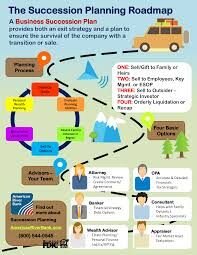Content

They also assume that a family member or valued employee will assume the company reigns when the time it right. According to a 2018 survey, 58% of business owners have not created a viable strategy even though a succession plan usually yields better results for the bottom line. However, it’s never too late to begin succession planning for your small business. For those small business owners who have not implemented one, it’s typically due to a general misunderstanding of what a succession plan entails. The SCORE Association offers a comprehensive guide for small business succession planning, which can be a great place to start. While COVID-19 has created so many unknowns for small businesses, control what you can by creating or revising a plan to ensure your business survives for generations to come. Proper succession planning calls for careful consideration and preparation.
Our team is ready to provide sound advice and legal solutions to facilitate a successful transition. Finally, business owners can choose to pursue a hybrid option where management is turned over to a key employee while the family retains full or partial ownership. This strategy allows the family to maintain financial rights as well as top-level decision-making power, while simultaneously preserving the most qualified candidates to manage the business.

If you were a business owner who was considering putting your company on the market but decided not to sell , what steps should be you taking now? The goals are to ensure preservation of the current business, as well as provide for an orderly and stable future transition when the proper time to sell arrives. Accordingly, the first and most critical step is setting a goal to implement both a business continuity plan and a business succession plan. However, because family dynamics can affect business succession planning, the owner of a family-operated business may want to begin discussions related to business succession immediately if a plan is not already in place. Early planning gives the owner more flexibility to tailor a business succession plan that allows the owner to remain with the company in a capacity he or she chooses for as long as he or she desires. If you own a small business, developing your succession plan is a critical element of business planning. Many business owners fail to appreciate the complexities and time involved in successfully transitioning a business.
We And Our Partners Process Data To:
Unfortunately, almost one-half of the small business owners with a succession plan did not discuss their plan with an attorney or financial advisor because they did not believe it was necessary. A business succession plan is a document that guides you through the change in ownership of your company. Business succession plans that are well-crafted include several sections that cover many topics and information. The number of small business owners without a business succession plan is shocking. One study conducted by Wilmington Trust found that 58 percent of the small business owners surveyed had no business succession plan.
The partnership agreement typically dictates how the partnership interest may be transferred when a partner exits the company. You may also want to meet with a Maryland business lawyer, financial advisor, and CPA .

Once a set dollar value has been determined, life insurance is purchased on all partners in the business. All of this requires a humble look at the business and defining what the future should look like. This also requires you to return to the same mindset you had when you started the business. Succession requires that founders get creative, try new things and fail, but — just like when you started — never quit. The reality of facing succession is probably the most important and hardest hurdle for founders. It can be difficult to think about someone else running the business you have put all your blood, sweat and tears into. It’s a daunting task to try to teach someone else everything you know and trust them enough to run the business the way you would want.
Knowing how your business will transition, who will take over, and how heirs and partners will be compensated are all keys to reducing future stress in the event of an owner’s sudden departure. “One of the most common mistakes business owners make in succession planning is failing to review their plan regularly. Time changes many things and, for your succession plan to be effective, it needs to be reviewed regularly and updated to reflect any changes. These could be company changes, tax law updates, changes in valuation, or new industry developments, among other things.
What happens when more than one family member wants to take over the company? Will family members own equal interests in the company or receive equal distributions of profits? These questions and many other questions need to be addressed and discussed as soon as possible so you can develop a business succession plan in the best interests of all family members.
Consider The Benefits Of Succession Planning
A cash flow lender will evaluate a three to four-year trend in revenue, expense margins, operating margins and projections. This can mean the difference in the seller achieving their goal for retirement or walking away just being able to pay off their current debt obligations for the business. In fact, once developed they should be revisited regularly to ensure that they still align with your wishes for your legacy and the continuation of your business.

If some family members feel as if they are being excluded, it can cause friction with the company and the family. You do not want to overlook the valuable insight and talent available within your family that can benefit your company. It is not always necessary to go outside the company to locate the talent and skills you need. ❏ Potential solutions and options for financing the transfer of the company to another owner. ❏ Standard Operating Procedures for the company, such as a copy of the employee handbook, company policies, procedure manuals, etc.
Reasons To Have A Business Succession Plan
In the wake of the current global emergency, consider these elements as you create or revisit your overall succession plan. The current global health crisis has created unique challenges for small businesses across the nation, which seemed to hit like a tidal wave. COVID-19 has negatively impacted small business operations in an array of industries, but it has also shed light on a crucial element of running a solid business – succession planning. Succession planning is a process that ensures your small business is prepared for the future. Some may think that having a succession plan in place may be reserved for those nearing retirement age or a family-owned business, but succession planning can ensure long-term success for your business. The true value of a comprehensive succession plan has never been more apparent than right now.
One of the positives we can glean from all this turmoil is that it prompts an opportunity to better plan for future unknowns. And that’s great news, because the pride and fulfillment you derive from running your company can actually be enhanced by developing a succession plan. In this second installment of our three-part series on small business owners planning for the future, we’ll show you why—and how—to create your succession plan. No matter what your plans are for the future of the business, eventually, you will transition it to someone.
Open communication within succession planning is important to the success of the task. The small business owner should also consider salary and benefit increases when the grooming begins that includes increases as more responsibility is gained within the organization. Partial ownership can also be transferred at certain times as objectives are reached if the small business owner desires. The choice of provider may be based on the complexity of the business as well as the event being planned for. There are several key steps necessary to create a comprehensive small business succession plan, and several ways to go about creating your plan. Some business owners may choose to create their own succession plan, while others may wish to engage the help of a professional, depending on the complexity of the plan and the business.
Consider meeting and discussing with your vendors, customers and suppliers the challenges that were presented by the COVID-19 restrictions. Get their views on how things could have been handled more effectively. How the transfer of the business impacts the successor owner and other family members.
How Can A Business Succession Planning Attorney Help?
When it’s done, you’ll thank yourself, and your business will be better off for having gone through the process. Succession planning may be the single-most neglected aspect of business ownership. Coordinating the intersection of the family component with ownership and management of the business. The family component can have a significant impact on business ownership and interest, depending on how many family members are involved or want to be involved with the business. After addressing the various matters and issues related to transferring or exiting your business, you can develop a detailed business succession plan based on the option you choose for exiting the company. Most comprehensive succession plans include sections with alternative plans if something occurs that renders the preferred succession plan impracticable or unfeasible. If no one in your family is willing to take over the company, consider selling the business to a key employee.
In fact, recent surveys indicate that only 30 percent of business owners have a succession plan. As the founder of a small business, you are great at building products or delivering services. You were motivated to take the huge risk of starting something from scratch, and the business has survived against the odds. Maybe you love company operations but aren’t as good at the business side of things.
Despite this drawback, entity purchases can still be beneficial when you have a large number of co-owners. Drafting cross-purchase agreements with each owner can be cumbersome. An entity purchase agreement, in comparison, is much simpler to implement. It can typically be funded with a single life insurance policy for each co-owner. An entity purchase is similar to a cross-purchase, in which you sell your shares to a co-owner or co-owners.
- Decide when and how much to involve each family member and other family members in the decision making process for succession planning and after transferring the business to the next generation.
- It can also be helpful to spend time identifying your personal and financial short-term and long-term goals.
- For those small business owners who have not implemented one, it’s typically due to a general misunderstanding of what a succession plan entails.
- All too often, a succession plan cannot be implemented as intended because it conflicts with these other items.
Selling the company to an outside purchaser may be one of the best options you have to maximize the value of your company for yourself and your heirs. However, locating a willing and qualified purchaser for the company might be difficult. If you have a business partner, you may not have a choice for how to transfer your interest in the company.
Succession planning provides a head start for organizations that feel they have team members who can potentially play larger roles in the company when the time is needed. Taking the time and spending the energy and resources on a solid, evolving succession plan pays off in ways that many companies do not fully understand until the act of transitioning key roles occurs. This list of questions, far from complete, is a major reason why so few firms have an actionable succession plan in place. AWilmington Trust surveyfound nearly 60 percent of small business owners do not have a succession plan in place. Though difficult, coming up with the list of questions specific to your family and firm, and at least reasoning through your answers, is a critical first step. Another important component of a robust succession plan, especially in the face of the virus, is business continuity.
The business succession plan is a roadmap for achieving your goals, regardless of the option you choose for exiting your business. Many small business owners work for years building a company with the intention of passing the company to their heirs. They envision future generations owning and operating the company they started. After completing your business succession plan, remember to review your plan regularly. Business, industry, and life changes may necessitate changes to your succession plan. Some companies initially bake future external hires into their larger succession plan for the company.
Speak with your legal, tax, or financial advisor to determine if a limited liability company , partnership, S corporation, or C corporation designation would be the best fit for your firm. Succession planning involves more than just deciding who will run the business. Equally as important is determining what kind of business those successors will run. Plus, understanding the enterprise value of the firm and funding the ownership transition go hand-in-hand with these strategic decisions.
If the successor does not seem to be working out with the plan, it is up to the small business owner to inform the person and choose another candidate that will be a better fit for the future of the organization. Perhaps the most important element of a succession plan is identifying the candidate that will be groomed to take over the business.
Option Four: Close And Liquidate The Company
Passing the baton to those you’ve groomed, enjoying the fruits of a career dedicated to the business you’ve built, riding off into the sunset, perhaps literally, to travel and unwind. A buy and sell agreement controls the reassignment of a share of a business in the event that a partner dies or retires.
Many think the most ideal situation would be to have a clone of themselves. Fudge plans to review her goals with her financial advisor and make sure she puts her desires in writing. Entrepreneur Adrienne Fudge has spent long days and nights over the past six months figuring out how she can secure food and containers from vendors so that her Maplewood, New Jersey-based business can continue to operate. The company, 40 Dreams Catering, cooks, packages and delivers meals to seniors and disabled adults in neighboring communities. There may be a surprising silver lining to the Covid-19 crisis for some small businesses. His expertise is highlighted throughout Fit Small Business in content around startup financing, business loans, and buying and selling a business.
Her areas of expertise include marketing, human resources, finance and leadership. She holds a Master of Business Administration from the University of Georgia. “The more you can prepare yourself for what might happen with the good and the bad.” Sign up to receive more well-researched small business articles and topics in your inbox, personalized for you.

